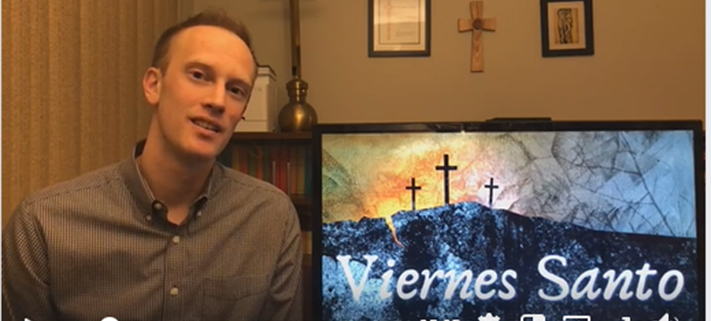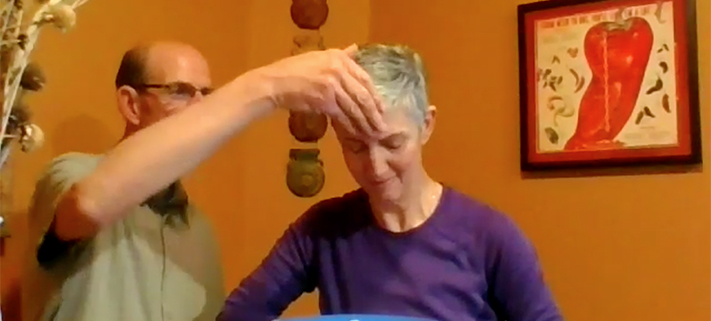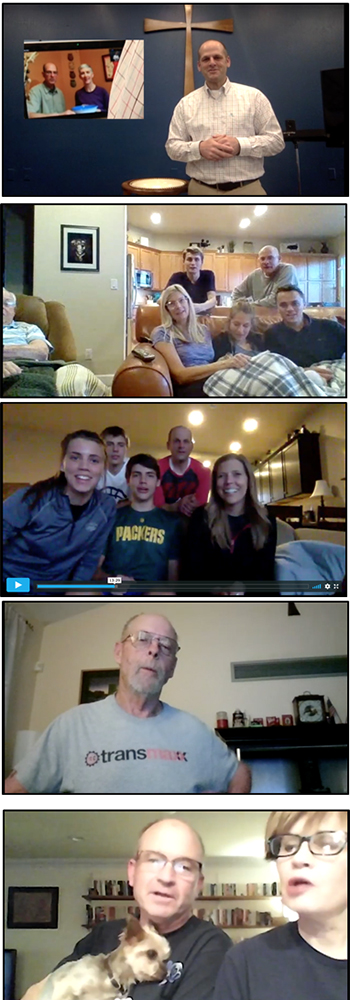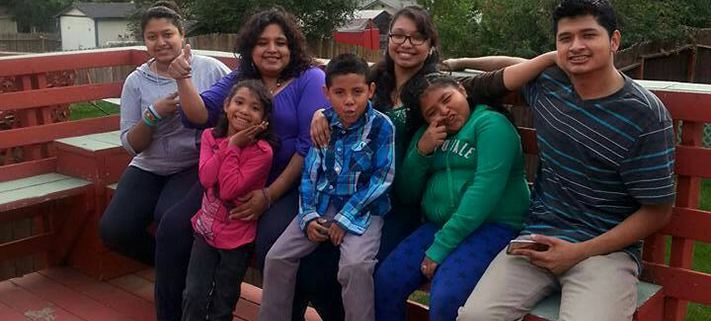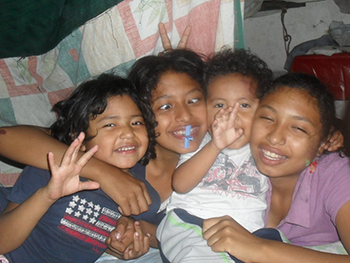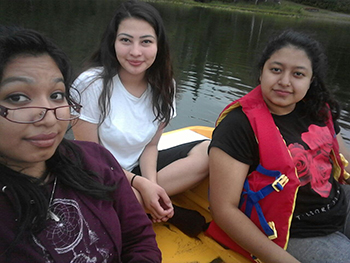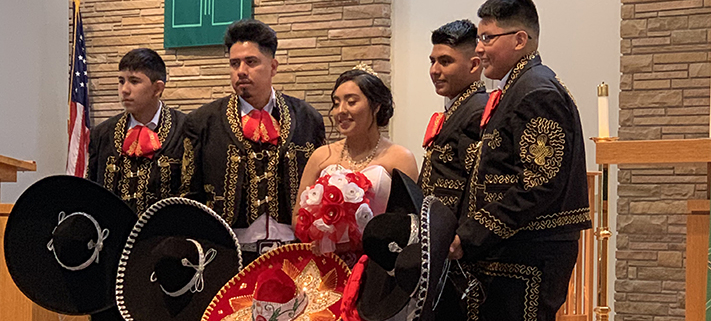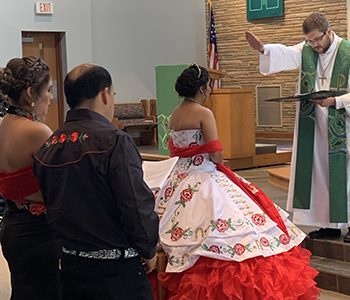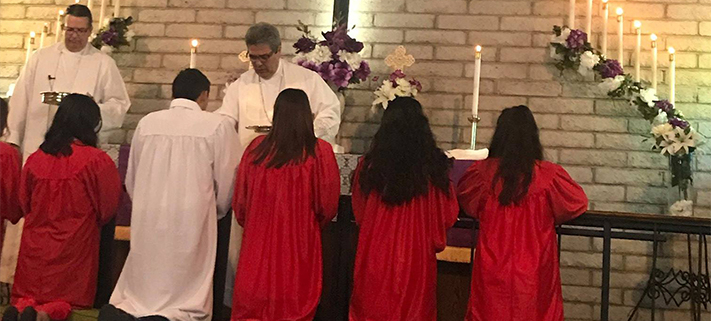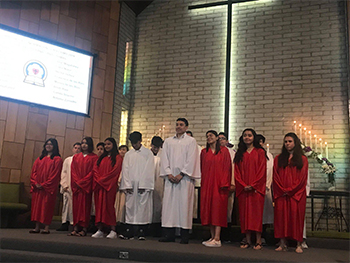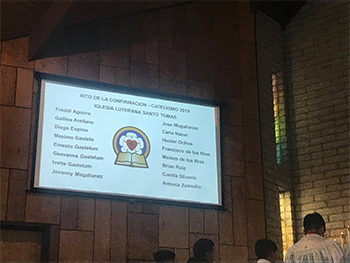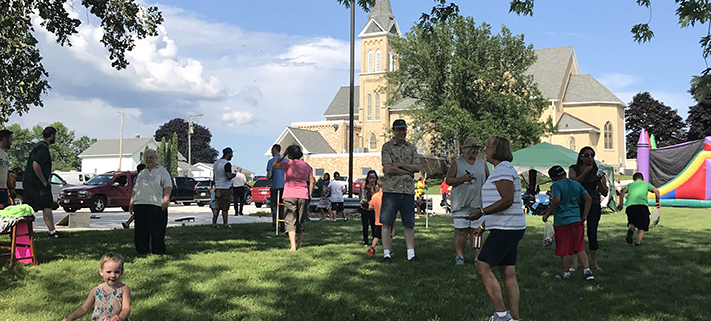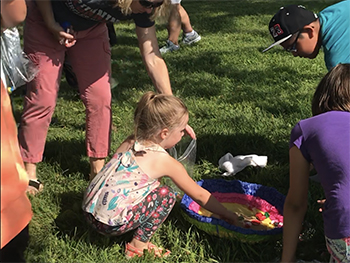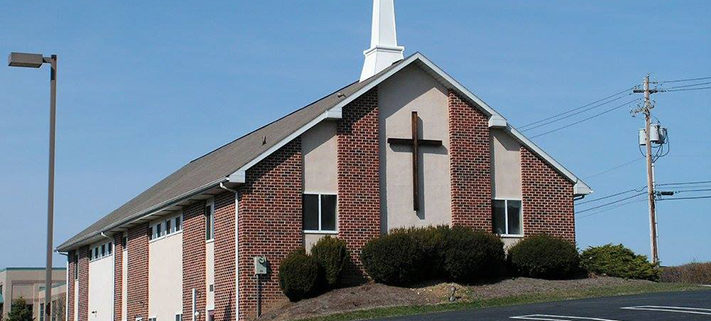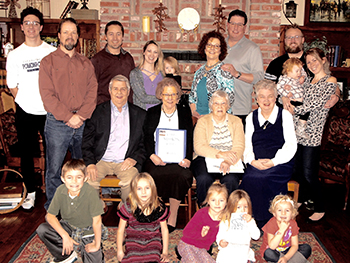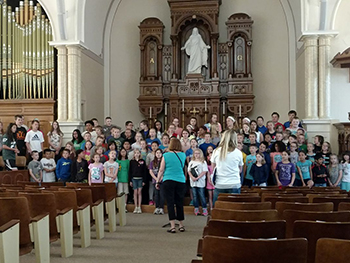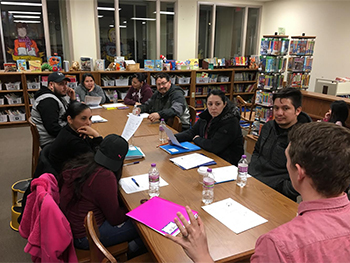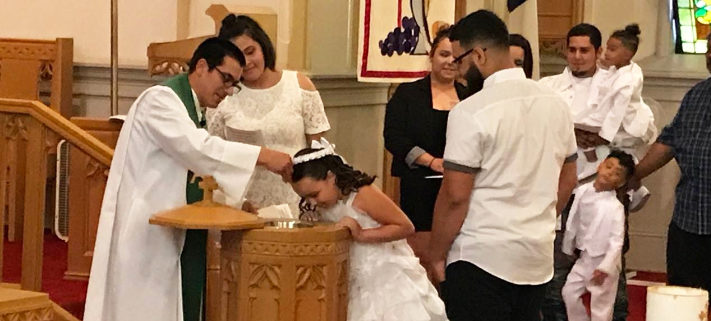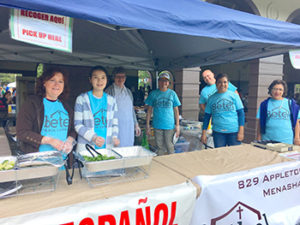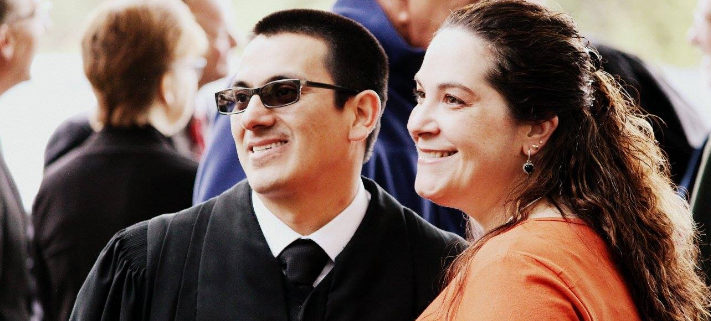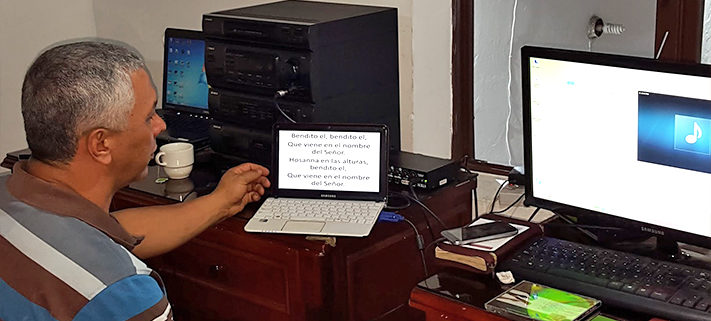Julie K. Wietzke
Different histories, one future
When we talk about reaching out to other cultures in the United States, we can’t ignore the amazing opportunities God is providing for us to share the good news of Jesus with Spanish-speakers.
Consider these statistics:
- Hispanic people are the largestminority in the United States, with an estimated 54 million Hispanic people comprising over 17% of the population (2015 Census).
- More than75 percent of WELS congregations are located in areas of concentrated Hispanic populations (more than 1,500 Hispanics who live within three miles of the church).
But how do we reach out to people who speak a different language than we do?
“You just need to have an open heart and a willingness to change, and be willing to love,” says Timothy Flunker, WELS National Hispanic Consultant.
Exploring opportunities
Having an open heart may help you see the opportunities God has placed in front of you. A few years ago, Greg Pope, pastor at Trinity, Liberty (rural Manitowoc), Wis., began noticing more and more Hispanics as he made his door to door visits. “I would come across Hispanic families who didn’t know a lot of English. They seemed interested in my message, but I couldn’t communicate,” he says.
He discovered that half of the workforce of the large local farms was Hispanic. He also found out his members had connections with these Spanish speakers—some as employers and some as fellow workers in the fields.
Pope contacted Flunker to find out how he and his congregation could reach this new mission field. Flunker suggested offering English Improvement Opportunity (EIO) classes as a way to meet their neighbors and build a base.
According to Flunker, most of the more than 100 WELS congregations doing Hispanic outreach started with offering English classes. These classes fill a need for the Hispanics who want to learn English, as well as create friendships and connections with congregation members that lead to witnessing opportunities. Gospel seeds are also sown when later classes begin with devotions in simplified English.
Eighteen months after Pope contacted Flunker, the congregation offered its first English class in October 2017. Much work happened during that time. Members were inspired to see this new opportunity. Neighboring churches were alerted. Volunteers were recruited and trained. The classes were advertised.
And yet, despite the interest shown in the community, only one person came.
Most likely, this is because the classes started during harvest-time, when many Hispanics are working long, hard hours. But Flunker says it also can take time to break into the community. “I encourage congregations not to think in large, bold, success numbers [when starting],” he says. “Think one to two families. Just be content to get to know them, and they will be the conduit into that community.”
Says Pope, “I’m very eager and excited for it to develop and gain momentum. Only God knows the result of it.”
Making connections
Four years ago, Immanuel, Waukegan, Ill., a congregation that has just celebrated its 125th anniversary, also saw an opportunity. Waukegan had turned into a Midwest hub for Hispanic immigrants, with more than 65 percent of the community being Spanish speakers. Immanuel’s school was drawing heavily from the Hispanic community and was growing steadily.
Wanting to reach out further into its community, Immanuel began English as Conversation Outreach classes. Over the course of four years, the classes grew, sometimes having 35 to 40 adult students a night. These students expressed interest in the church, but since the pastor didn’t speak Spanish, the congregation couldn’t offer Spanish services or dig deeper into the Word with them.
The congregation approached the Board for Home Missions, and this past spring, the board funded a bilingual pastor for the next three years to cultivate relationships with Immanuel’s Hispanic prospects. Then Immanuel’s current pastor plans to retire, and the bilingual pastor will take over the entire ministry.
Seth Haakenson, Immanuel’s new bilingual pastor, is now connecting with the parents of school children and starting Spanish language Bible studies in peoples’ homes. Talking about faith in the Hispanic culture is not considered taboo, according to Haakenson. “They have grown up in a culture that is very religious, but they don’t know who Jesus is,” he says. “Once they know who Jesus is, the light turns on.”
Haakenson says he probably will start Spanish-language worship in six months to a year, depending on the interest of the people. Some Hispanic families already attend the English services, but other newer Christians want to worship in Spanish. “They want the Spanish services not because they don’t want to integrate but because it’s the language they understand the most for learning the Bible,” says Haakenson.
That being said, he is quick to note that Immanuel is one church. “We have different histories, but we have one future,” he says. “It’s not languages and cultures that unite us; it’s a common faith in Christ.” To celebrate that connection, he says that the congregation will have purposeful bilingual events and bilingual worship in the future.
Expanding ministry
Christ, Milwaukee, Wis., has been reaching out to its Hispanic neighbors on the southside of Milwaukee for more than 10 years. Its 200 members are evenly divided between Spanish speakers and English speakers. Its joint school with St. Peter, Milwaukee, even more so represents the community makeup, with 60 percent Latino students and between 30 to 40 percent Anglos.
The congregation has had a bilingual pastor since 2009, and just this year Nixon Vivar, a 2017 Pastoral Studies Institute graduate originally from Ecuador, was assigned as the congregation’s second bilingual pastor. While Vivar will focus more on Hispanic outreach and Chad Walta, the congregation’s other bilingual pastor, will focus more on the English side, they are working to overlap their ministries so that members, whether Hispanic or Anglo, see them both as their pastors and see the ministries as one.
According to Flunker, having pastors who speak both English and Spanish can make it easier to integrate Spanish-speaking families into the congregation, especially considering that children in these families often use English more than Spanish. With eight confirmands from the Spanish-speaking side of the congregation last year, involving this younger generation in church life is an exciting challenge. “They are the future of the congregation,” says Vivar. “But how do we use their talents and energy to serve the Lord?”
Being mindful of the Hispanic culture can provide opportunities for reaching this community. Through offering baptisms and quiñceaneras, two important religious events in the Hispanic culture, the pastors make connections within the community and can share the life-saving gospel message of faith alone. “Hispanics are very family- and friend-oriented,” says Walta. “If one or two start coming to faith in Jesus and start coming to church, they’re going to bring others.”
Vivar, who grew up Catholic, says he feels blessed and privileged to share the gospel message. “If I can put in their hearts what Jesus put in my heart—the joy of salvation—if I put it in one heart at a time, I would be so happy.”
Julie Wietzke is the managing editor of Forward in Christ magazine.
This is the fifth article in a series about cross-cultural outreach in the United States and Canada. Learn more at wels.net/missions.
Did you know?
Twenty WELS congregations hold worship in both Spanish and English, and more than 100 locations have some sort of Hispanic ministry, ranging from English classes to simplified English worship to Spanish language services.
Do you have a manuscript, idea, or story from your own life you’d like to share for use in Forward in Christ or on wels.net? Use our online form to share it to our editorial office for consideration.
Get inspirational stories, spiritual help, and synod news from Forward in Christ every month. Print and digital subscriptions are available from Northwestern Publishing House.
Author: Julie K. Wietzke
Volume 104, Number 12
Issue: December 2017
Copyrighted by WELS Forward in Christ © 2021
Forward in Christ grants permission for any original article (not a reprint) to be printed for use in a WELS church, school, or organization, provided that it is distributed free and indicate Forward in Christ as the source. Images may not be reproduced except in the context of its article. Contact us

